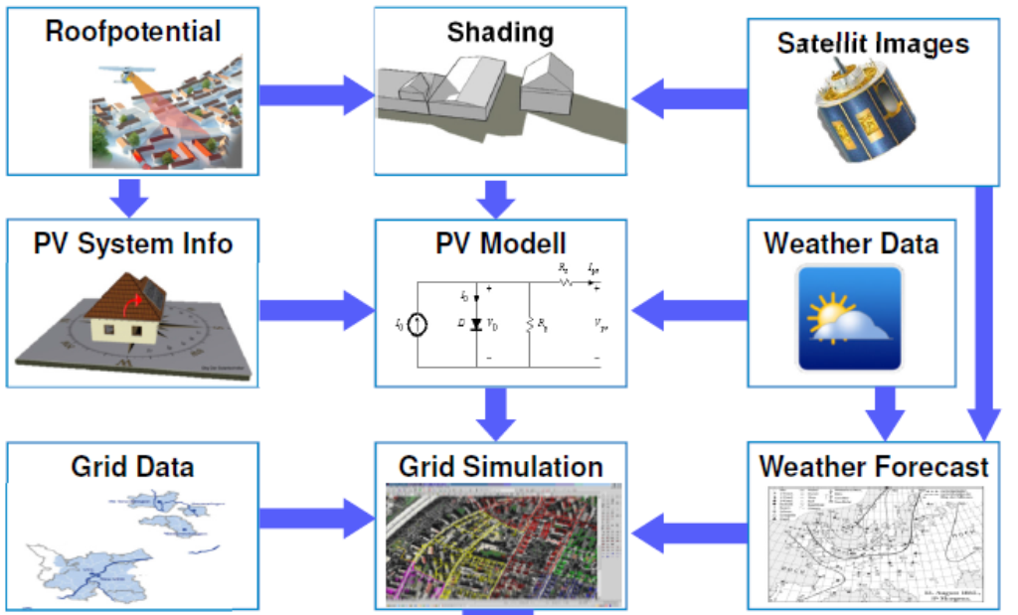The Virtual Smart Grid lab will serve as a common ground for all participating universities from Germany, France, Italy, Greece and Cyprus. In a form of a platform, it will comprise of important Smart Grid elements which will allow to test control facilities, storage and PV installations in real conditions. Work in all partner sites will be integrated into the virtual platform to be utilized in the Master’s course. This will enable to compare the storage and renewable energy generation used under different control regimes in the institutions across different parts of Europe.
The setup will be capable of measuring the prevailing meteorological conditions, obtained using appropriate meteorological sensors so that correlations between the weather conditions and performance are facilitated. Web cameras will allow to visually confirm the conditions during the experiments. Each user will be able to monitor and acquire data from the part of the platform of interest to proceed with the performance analysis required of each component or technology. In particular, the users will be able to measure in real time the selected installation parameters or measure responses to the events. The data acquired will be extracted in a file and saved locally on the user’s PC for further processing. The platform will therefore enable the partnering institutions to access a web interface that will display acquired measurements from the facilities under test.

Using the Virtual Smart Grid lab, the students can take part in real-life experiments and all participating universities can be actively involved. The virtual lab can be also easily expended and updated based on new installations, ideas, equipment and interests. The platform will truly engage the students in their learning process, as they will be able to participate in a research with real-world impact. Moreover, it will require an active involvement of Distribution System Operators to access real grid facilities. This will keep the Operators aware of the project outcomes and impact on their operation and will also address fundamental questions associated with the grid environment, the facilities and their interactions.

